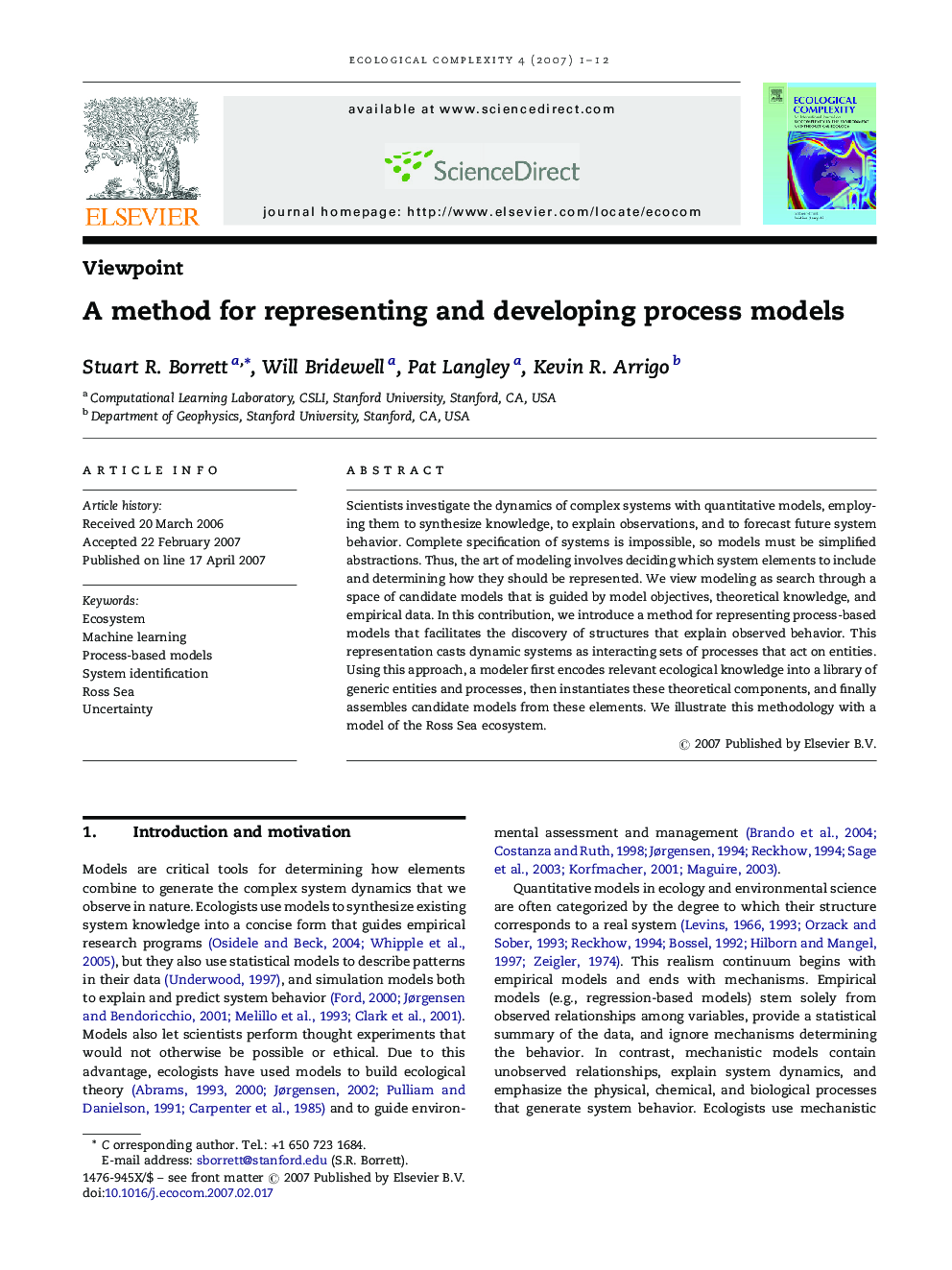| Article ID | Journal | Published Year | Pages | File Type |
|---|---|---|---|---|
| 4372807 | Ecological Complexity | 2007 | 12 Pages |
Scientists investigate the dynamics of complex systems with quantitative models, employing them to synthesize knowledge, to explain observations, and to forecast future system behavior. Complete specification of systems is impossible, so models must be simplified abstractions. Thus, the art of modeling involves deciding which system elements to include and determining how they should be represented. We view modeling as search through a space of candidate models that is guided by model objectives, theoretical knowledge, and empirical data. In this contribution, we introduce a method for representing process-based models that facilitates the discovery of structures that explain observed behavior. This representation casts dynamic systems as interacting sets of processes that act on entities. Using this approach, a modeler first encodes relevant ecological knowledge into a library of generic entities and processes, then instantiates these theoretical components, and finally assembles candidate models from these elements. We illustrate this methodology with a model of the Ross Sea ecosystem.
